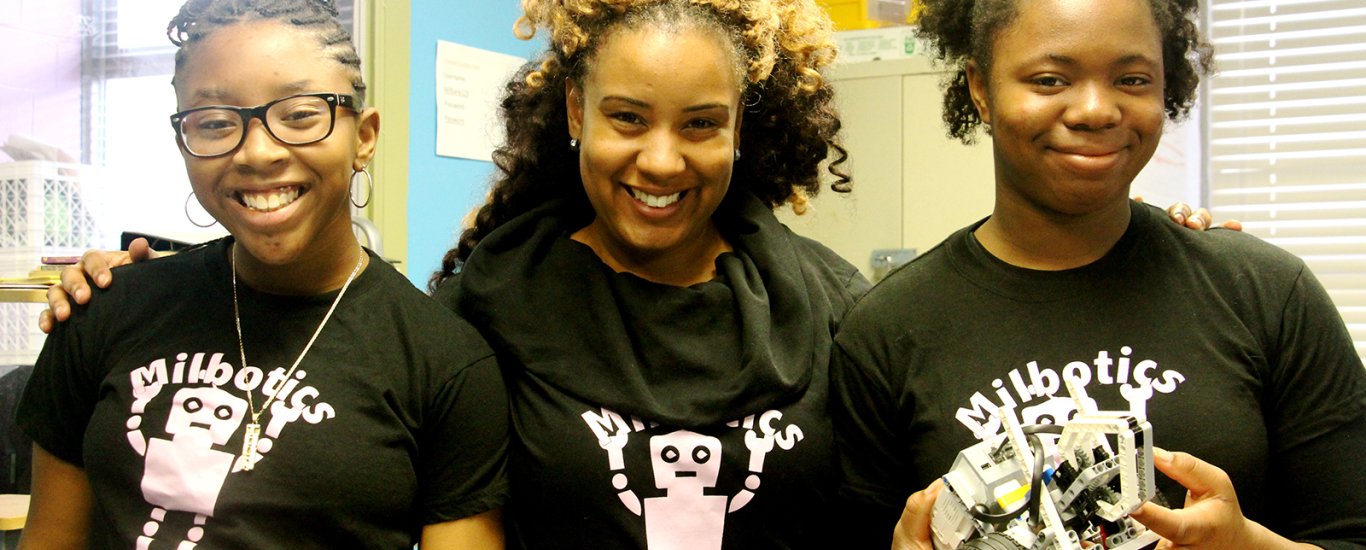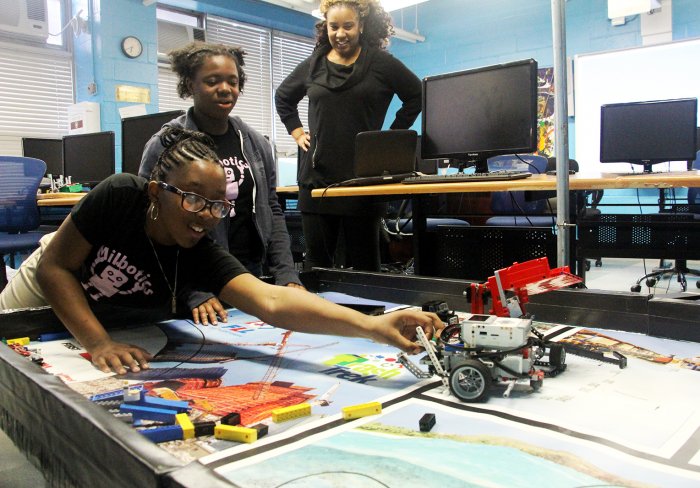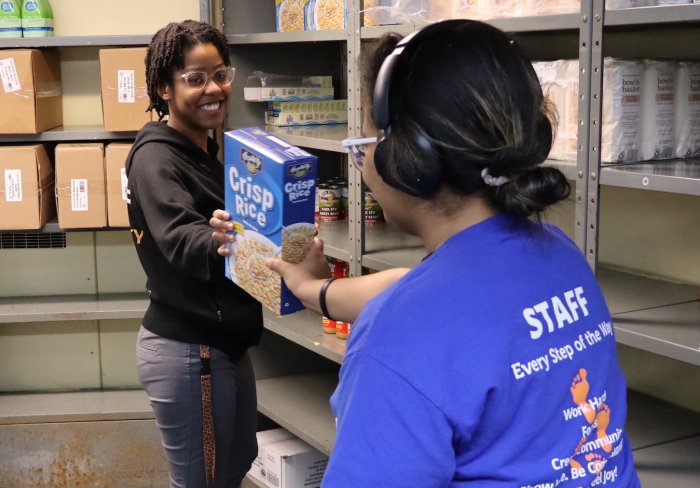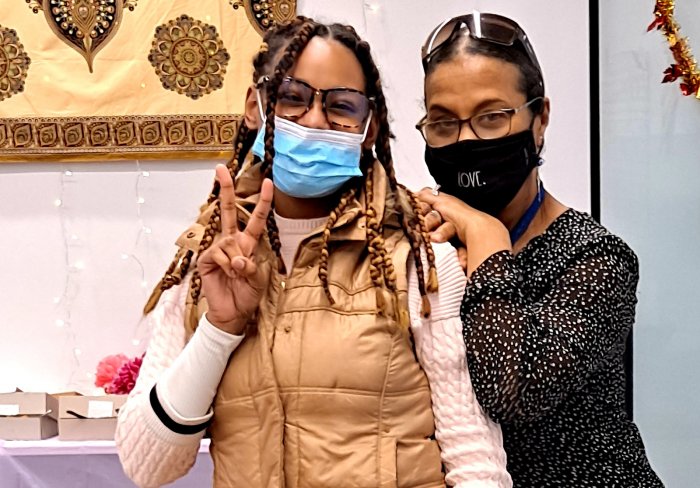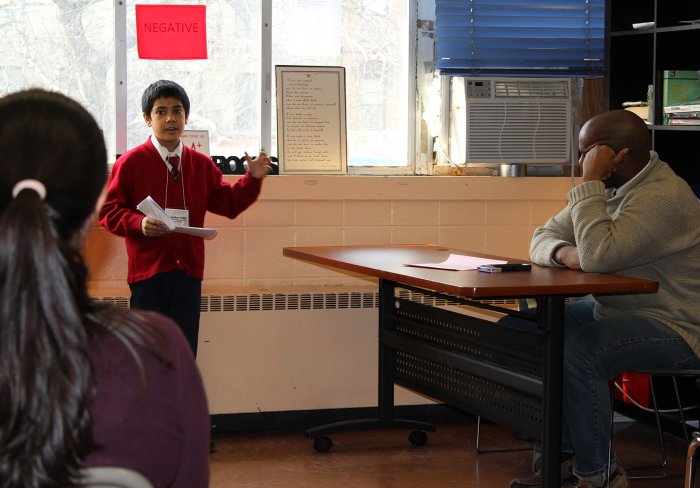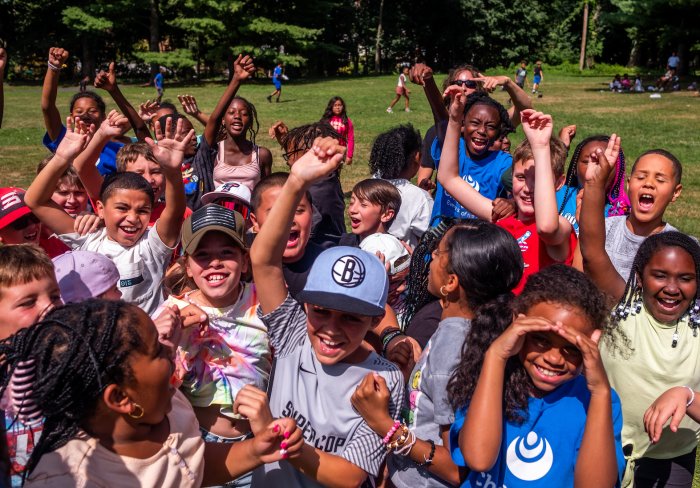Taryn was excited when she first learned that she would be playing with Legos in her after-school program at the Dunlevy Milbank Center. Her grandmother introduced her to the building blocks when she was a few years younger. So when given the choice of a role in the program, the 11-year-old knew right away she wanted to build.
Shelby, 12, was more intrigued in working behind a laptop. She was a newcomer to programming, but her talents were clearly demonstrated in writing code that would bring Taryn’s construction to life. Over the last seven months, Shelby, Taryn, and four other girls combined their researching, programming, and constructing talents to create a robot that could push, grab, and pull.
While girls and women are largely underrepresented in Science, Technology, Engineering, and Mathematics (STEM) classes and professions, at Milbank they form the majority. Under the guidance of the center’s technology director, Deja Flynn, the all-girl junior engineering team became Milbotics. At its intersection was the community center in Harlem and an immeasurable result of its after-school enrichment program: kids aged 9-13 creating long-term connections to STEM.
“Once a week we all switched off,” Shelby said of the program’s structure. Deja had the girls rotate between the research and technical roles. It was a strategy that not only gave them a well-rounded experience, but also strengthened their problem-solving skills.
“There is really no training you could get more than just diving in and trying for yourself,” said Deja.
And it is a strategy that holds true regardless of experience and expertise. The league’s robot model had changed since Deja last worked on the project, but the instructor used every new obstacle she faced as a teaching moment for her girls. “They had no idea I was figuring it out along with them,” she said.



